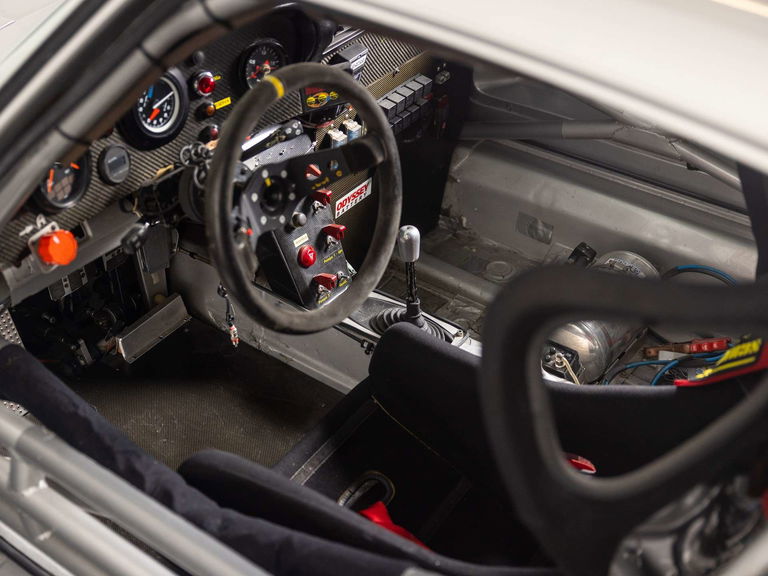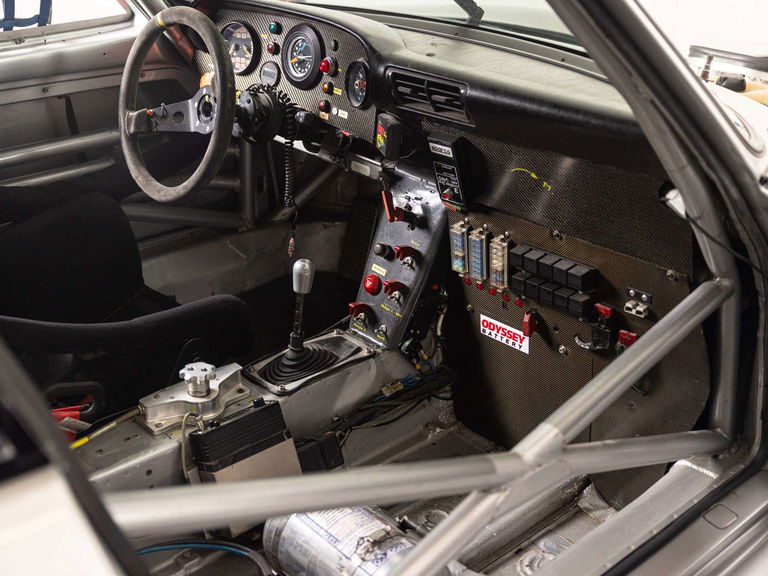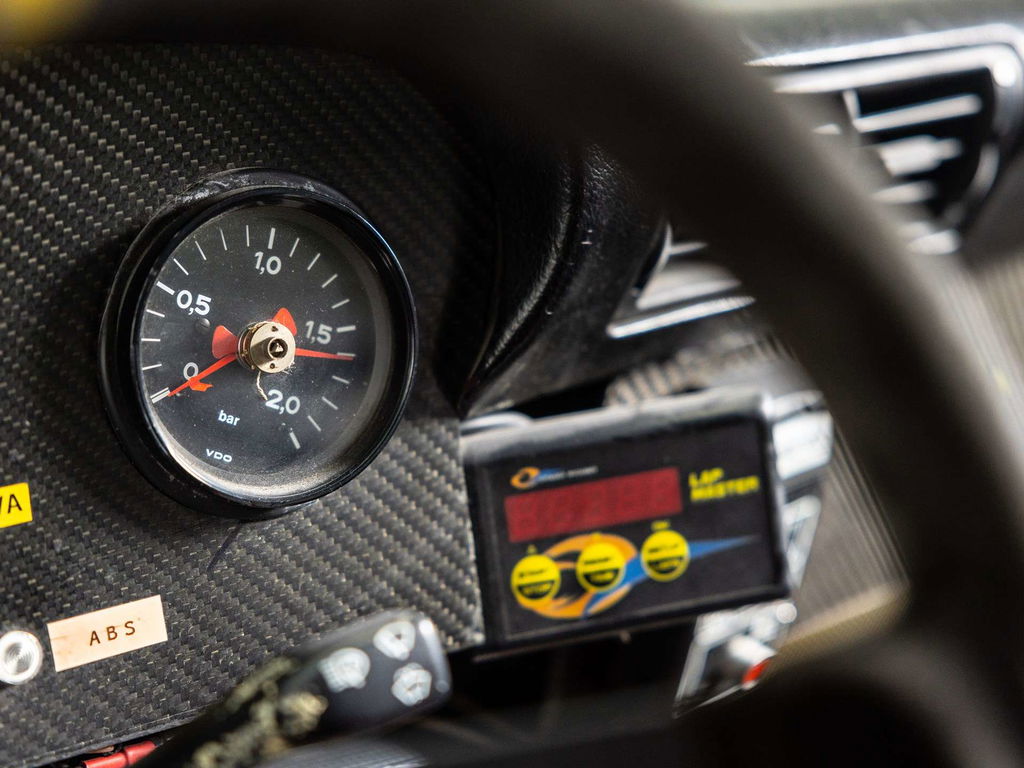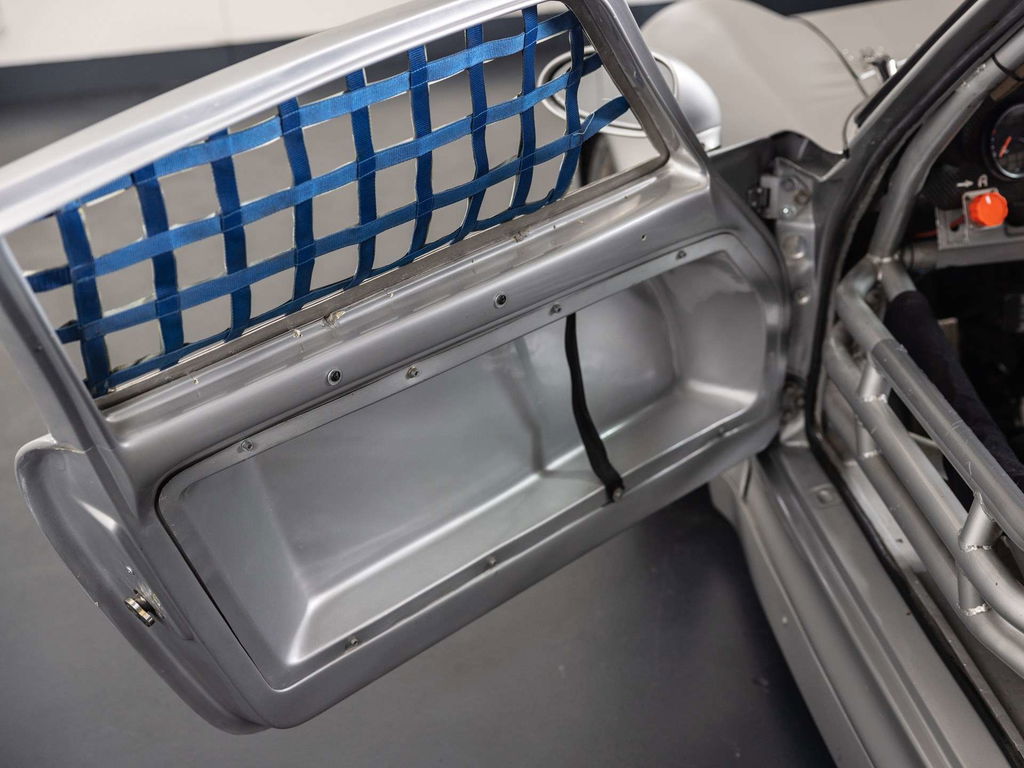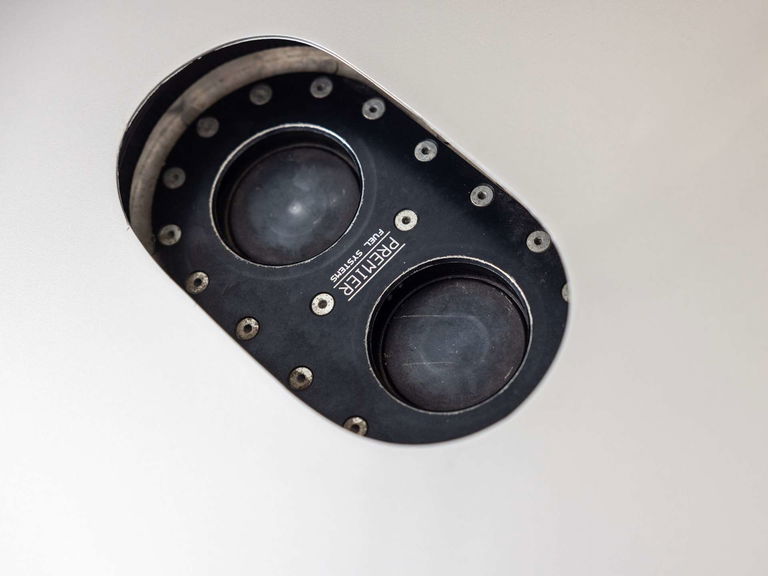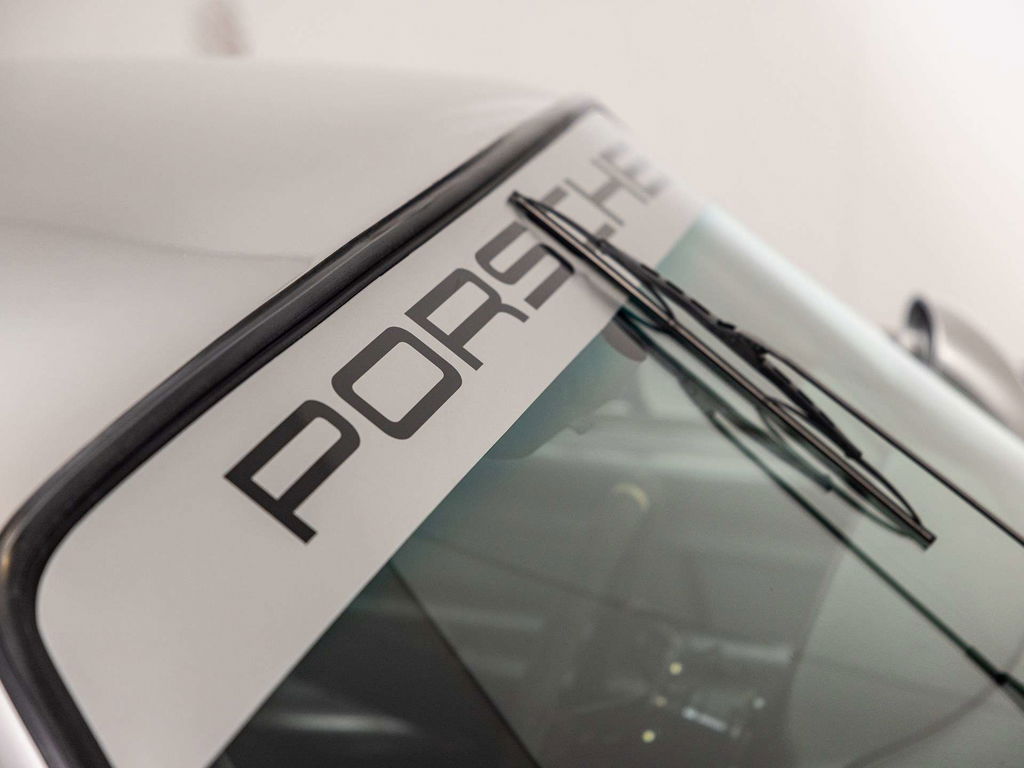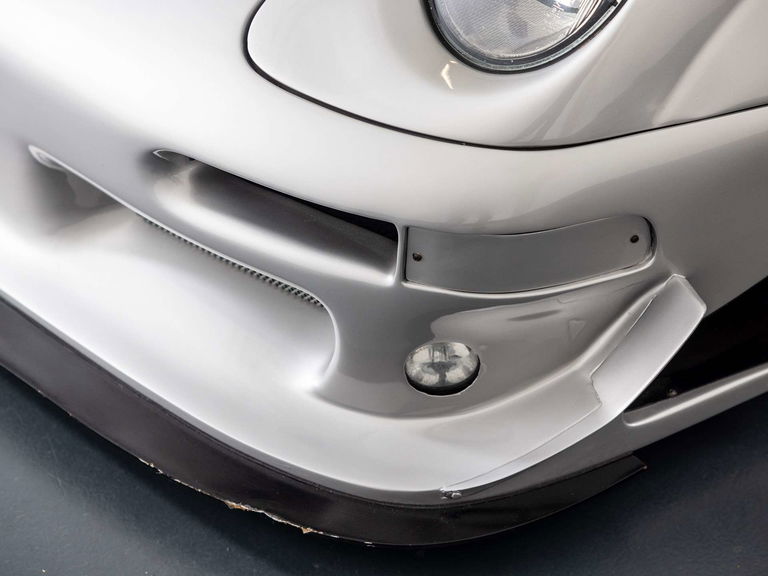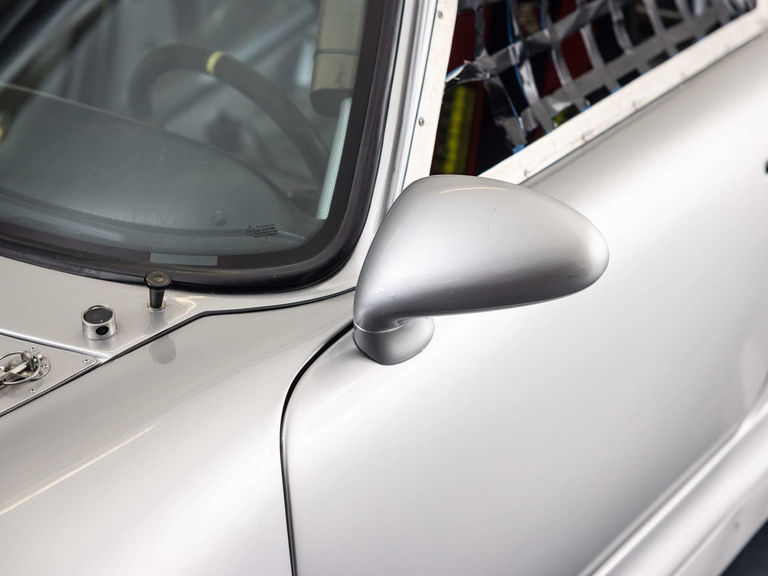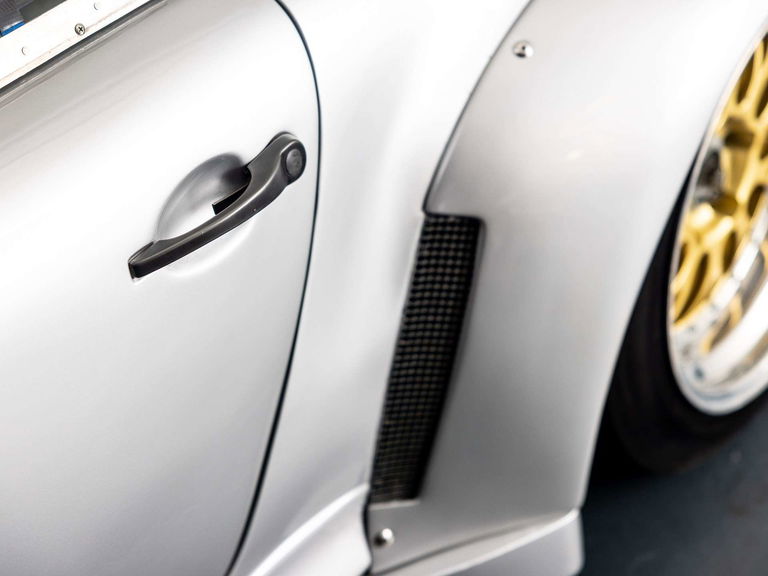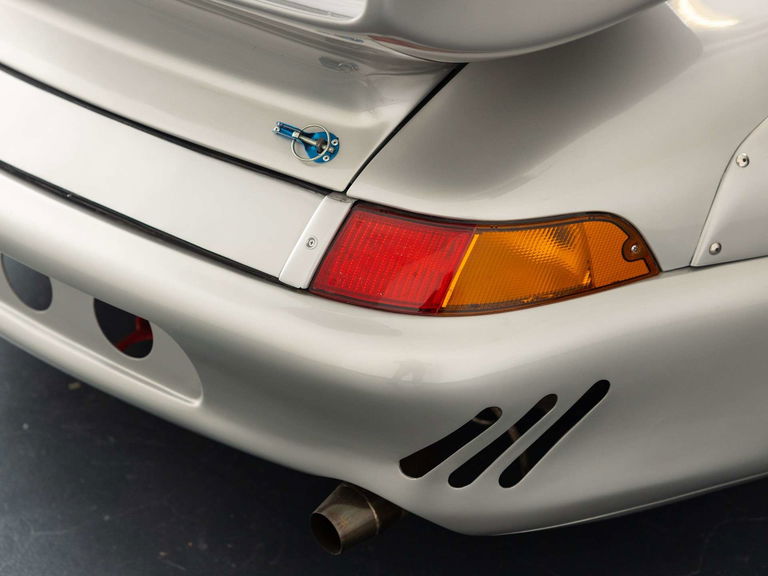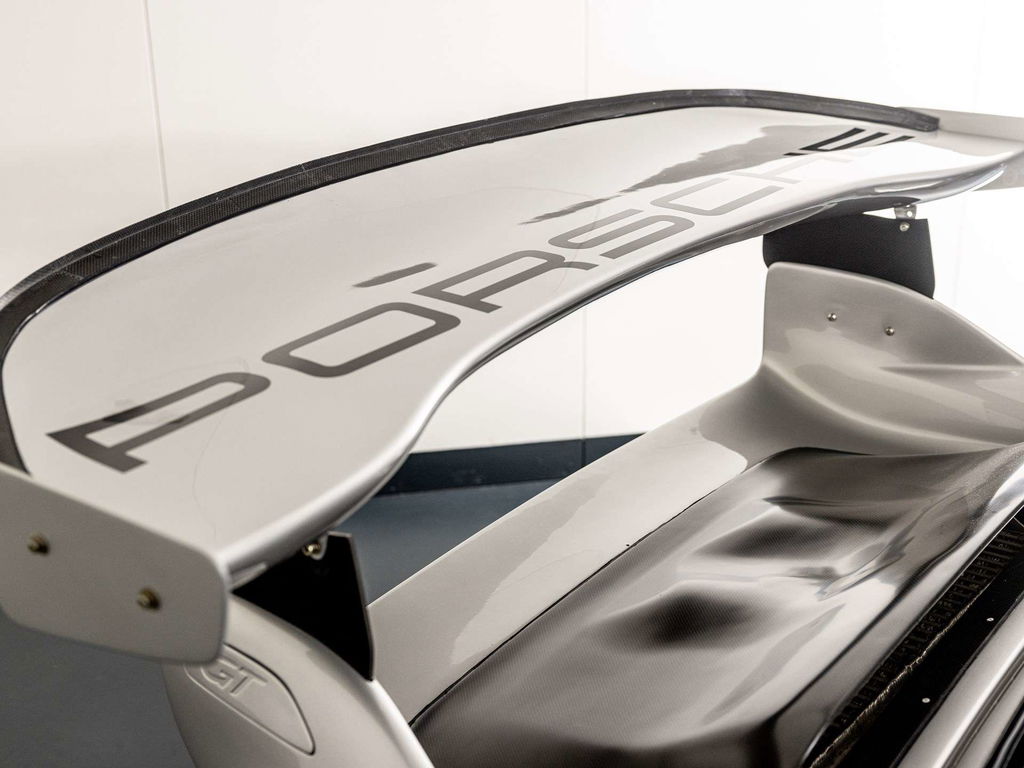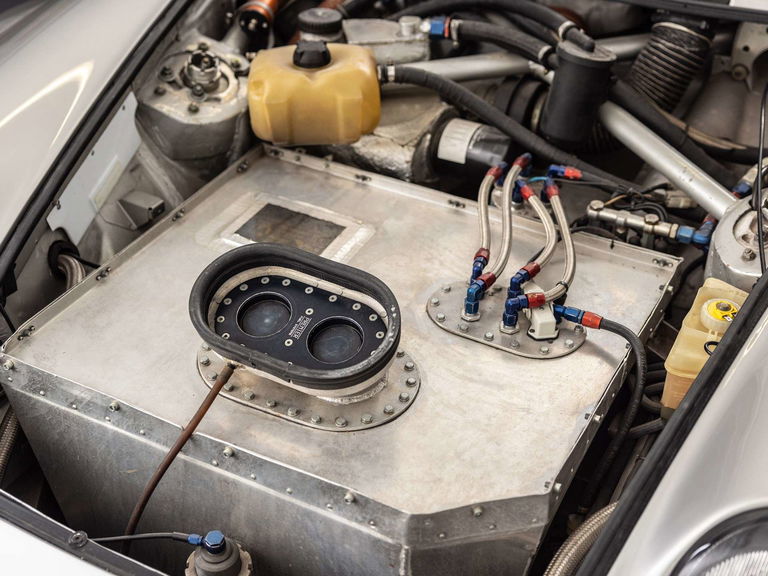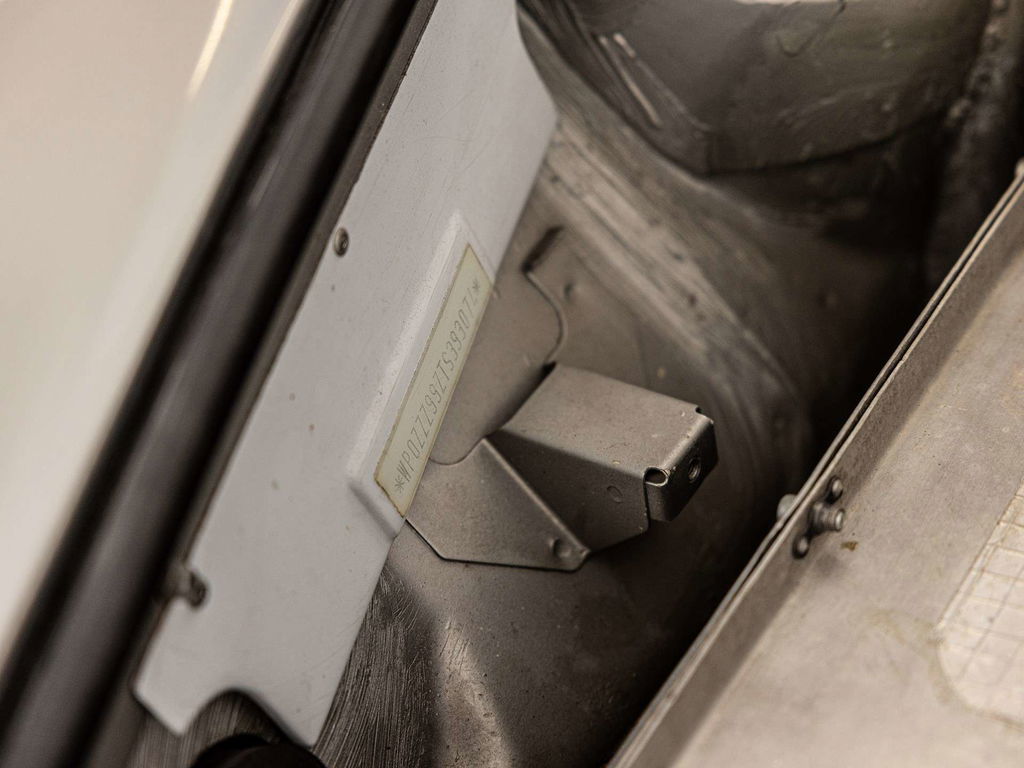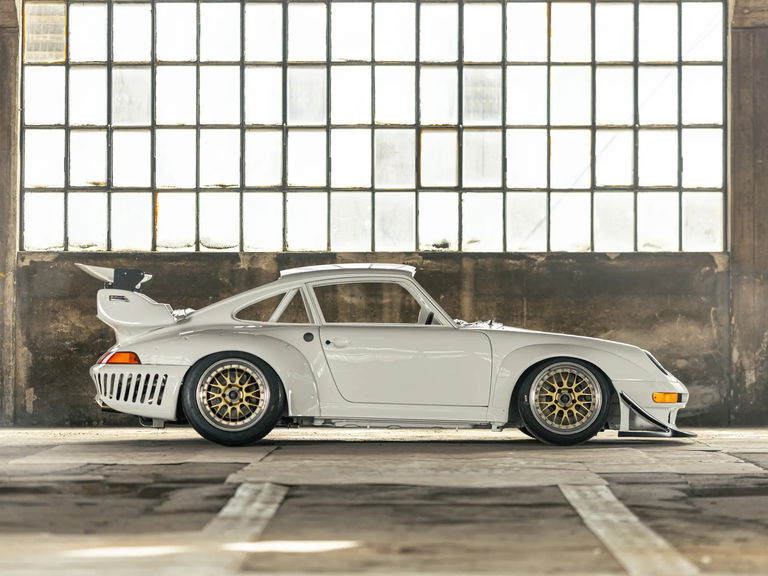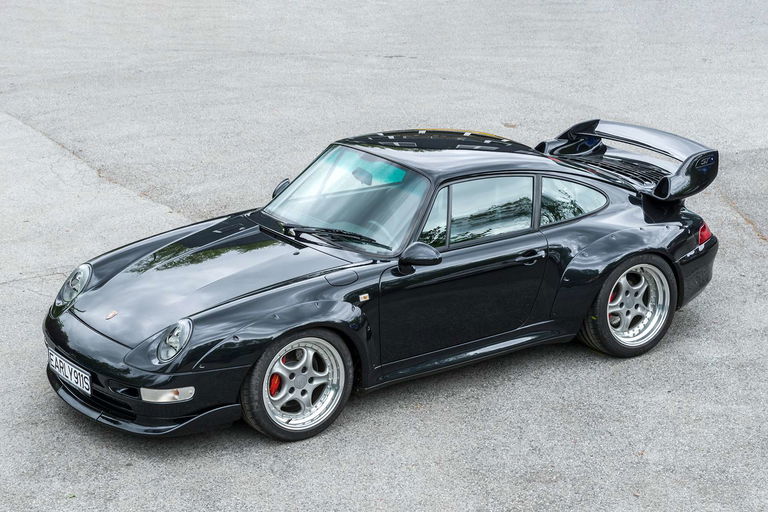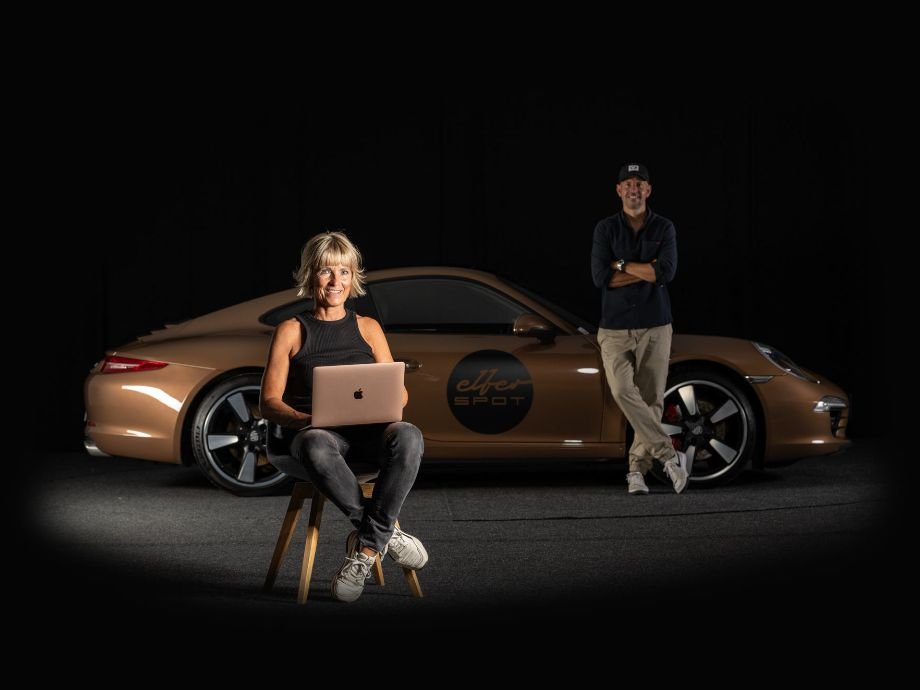By the mid-1990s, Porsche had become known for high-performance all-wheel-drive following the debut of its revolutionary 959 supercar a decade prior—with this accolated earned against the grain of its reputation for building rear-wheel-drive cars. During this time, the AWD technology would dominate motorsport, prompting GT2 competition to eventually ban racing cars with power to all four wheels. In part, this was Porsche’s own doing, as the race version of the company’s 959, the 961, had proven so successful.
Ever-resourceful, Porsche capitalised on the 993-generation 911’s highly evolved suspension and robust twin-turbocharged flat-six-cylinder engine even while reverting to rear-wheel drive to appease GT2 rulebooks. The result was the 911 GT2, the highest-performance version of the last of Porsche’s air-cooled cars.
The standard 911 that went into production in early-1994 featured a new multilink coil suspension that finally put to rest the lift-off oversteer that had plagued the company’s sports car for decades. A new six-speed manual transaxle added a gear to the outgoing 964-generation’s five-speed, and while the two shared interior trim, front deck lids, and roof panels, the similarities ended there. The 993 was a far superior, more rewarding car to drive.
A year later, the 911 Turbo bowed with a twin-turbo flat six-cylinder engine, and a massive, fixed rear spoiler. It diverged from its boosted predecessors by putting power to all four wheels. Then came the GT2. Far more than simply a rear-wheel-drive 911 Turbo, the 911 GT2’s doors and front deck lid were composed of weight-saving aluminium, while wider arches housing larger wheels could be removed and replaced quickly during competition. A massive rear spoiler incorporated functional air ducts to feed uprated intercoolers and KKK turbochargers, which helped the 3.6-litre flat-six produce 444 horsepower in street form. To further save weight, the 911 GT2 did without some of its Turbo sibling’s luxurious interior accoutrements and instead featured hard-shell sport seats, RS-specification door cards, and no rear seat. In accordance with homologation rules, Porsche built 193 street-specification versions for public consumption.
The 911 GT2 R—or “Rennversion”, as this example is referenced on its original Porsche collection certificate (available to view in the history file)—traces its roots to the street-legal type-993 GT2. The GT2 R was factory-rated with a power output of 450 horsepower to comply with GT2 regulations and key differences between that and its road-going sibling were the notable addition of a roll cage, track-focused suspension set-up, racing harness and seat, further to an aerodynamic body kit that featured a fully adjustable towering rear wing. The GT2 R also came equipped with model-specific KKK turbos, larger intercoolers, and a bespoke ultra-light exhaust.
The 911 GT2 R offered here was produced in February 1995. According to vehicle history compiled by the previous owner, the car was picked up new from the factory by Helmut Konig, who resided in Austria. He, together with driving partner Renato Mastropietro, competed with the car for just over a year before Helmut retired from racing due to health issues. He would sell the car to Mastropietro, who campaigned the Porsche in the 1999 and 2000 FIA GT Championship seasons for Seikel Motorsport.
The car is known to have crashed at the 500 Miles of Silverstone in 1999, after which point it is believed that Rennsport in Reggio Emilia, Italy—the same shop that provided mechanical support for his racing endeavors—ordered a new bare body from the factory and reassemble the vehicle as quickly as possible. The car had returned to racing by the end of June, entered into FIA GT Championship rounds at Hockenheim, Hungaroring, Oschersleben, and Donington. Seikel continued to race the car in 2000, with the Porsche appearing at Championship rounds in Valencia and Estoril, finishing 21st and 23rd overall respectively.
Some years later, Claudio Padovani of Parma, Italy acquired the vehicle and, together with Mastropietro, commissioned Rennsport to rebuild the car, this time reusing the original body—with repaired roof and roll cage—and finishing it in silver. The spare engine was said to have been updated to 3.8-litres of displacement and fitted to the chassis. The gearbox, suspension, brakes, and other components are said to have been bought new from the factory and installed by Rennsport.
Bidders should note that—having been on kept on static display for a number of years—the car will require recommissioning prior to being driven again. It is recommended that a mechanical inspection should be carried out by the buyer.
Under current ownership since 2014, the car was issued its latest FIVA passport in 2016 while also gaining an ACI technical passport. Now offered with previous documentation and historical photos from its previous restoration and competition over the years, this storied 911 GT2 Evolution represents an extremely rare opportunity for the Porsche enthusiast to own the ultimate evolution of the air-cooled 911.




